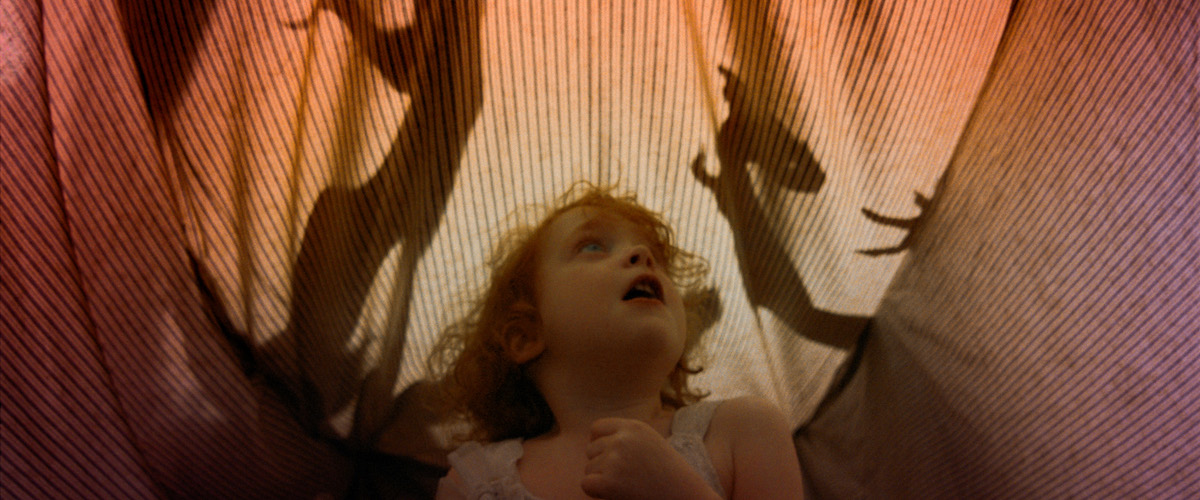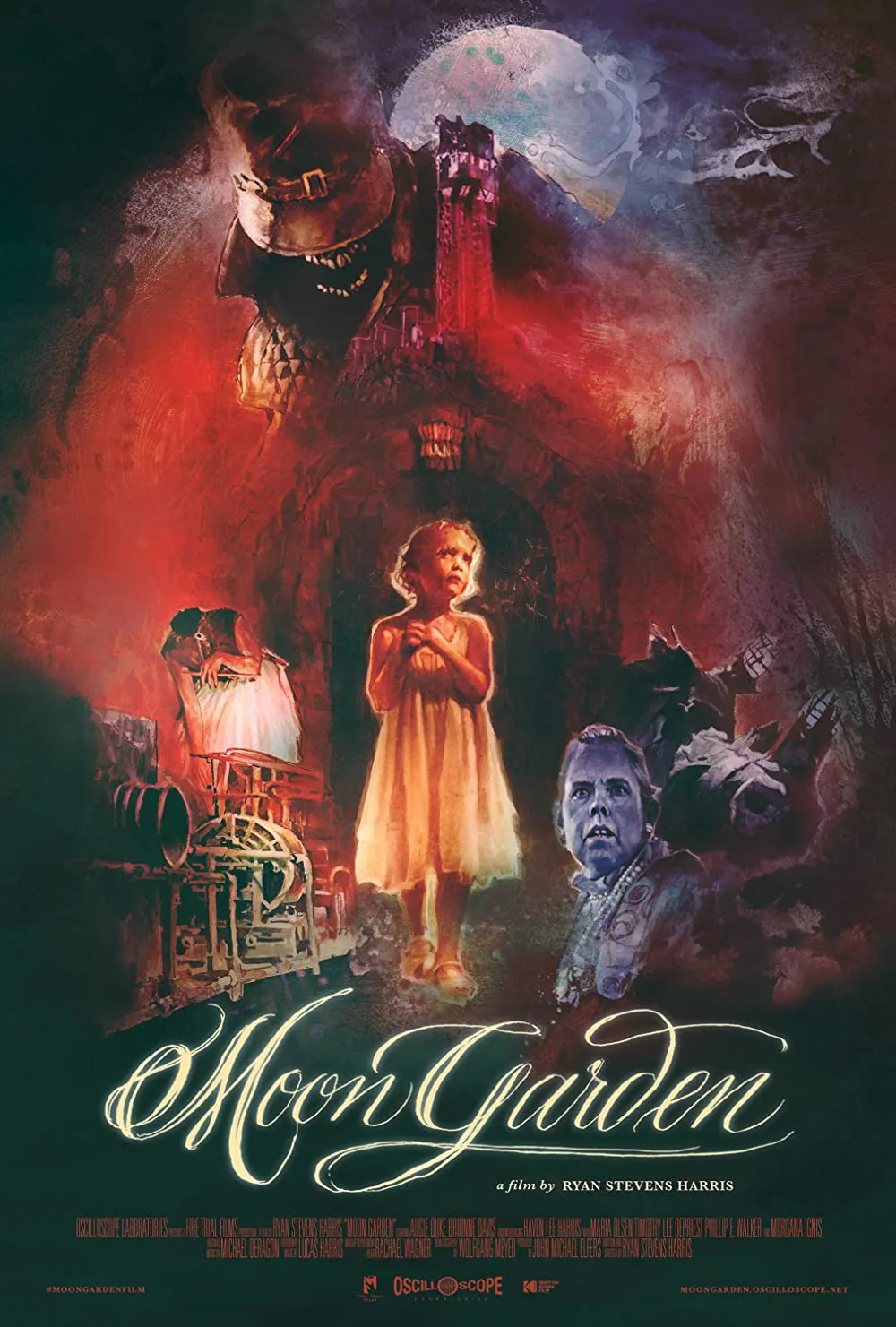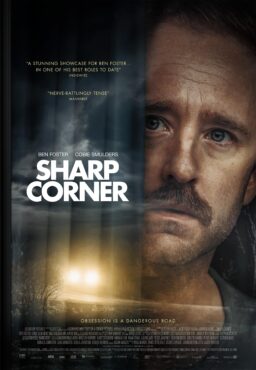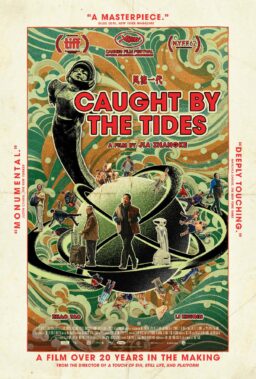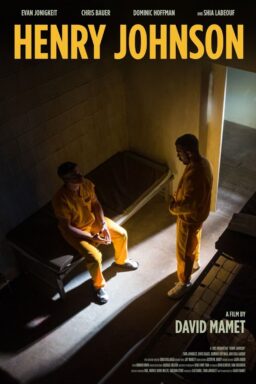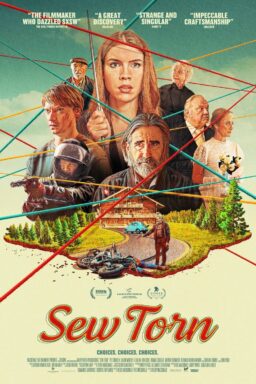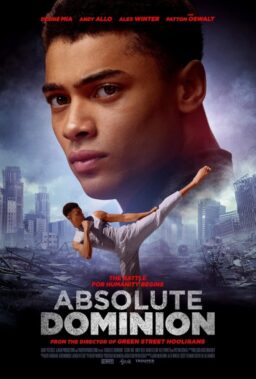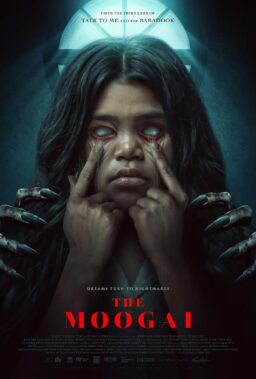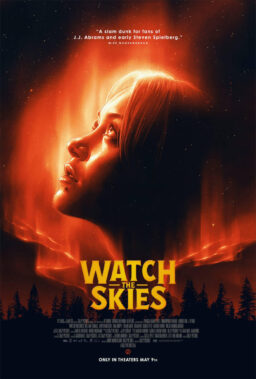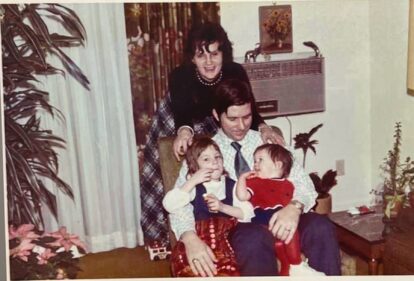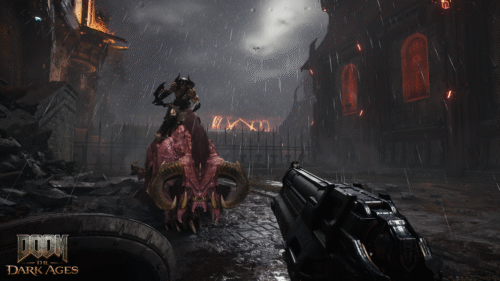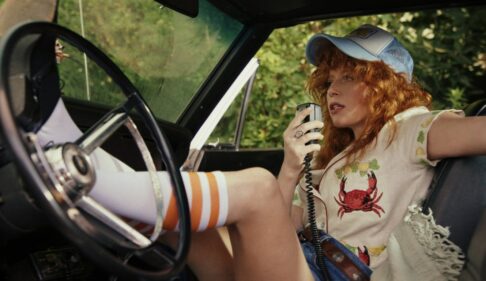Every now and then, a new film surprises you with something that should always be true: movie-making is magic-making. Especially so when its tricks happen in-camera, with instruments as practical as lighting, costumes, sets, and ideas. Ryan Stevens Harris’ “Moon Garden” is one such escape from zeroes and ones overload and general cynicism about where movies may be going. It is a horror/fantasy that puts every bit of its imagination on the screen and constantly impresses with its DIY spectacle.
Written and directed by Harris, “Moon Garden” primarily takes place inside the mind of a little girl named Emma (Haven Lee Harris, Ryan’s daughter). The five-year-old is currently in a coma, having tumbled down some stairs one night after trying to get her parents (Augie Duke and Brionne Davis) to stop fighting. Emma wanders a shadowy, dirty, and mysterious realm as her body lies in a hospital, with her parents sitting beside her. Lights flash, and radio signals echo. The population is unpredictable: strange, freaky characters tear themselves up from the ground; others reflect the woman Emma may become.
Harris’ film holds your attention scene-by-scene, even in a few moments in which the pacing gives way to just admiring the craftsmanship or the emotions are muted by symbolism that doesn’t feel airtight. It’s the type of project that warrants a second viewing, partly to catch its connections but also to savor the textures you might have missed on your first visit.
“Moon Garden” is most emotionally incisive about a child processing what’s around her, namely the growing unhappiness between her parents. And as Emma travels through different parts of this world—like when she climbs a ladder through the clouds—Harris shows us the memory of her doing something similar with her father. It’s one of the happy thoughts, contrasted with another real-world flashback where Emma hides under some sheets with her mother, only for the claw-like hand of her upset father to tear it open. That memory inspires one of this horror story’s simple but effective sets, a tunnel made of bedsheets.
“Moon Garden” is a whole mix of creations, a lovingly scrawled sketchbook come to life by a compulsive creator. One of Harris’ greatest feats is the main villain known as Teeth, who taunts Emma, and ushers in the film’s more overt horror elements. Dressed in a long black coat and cap, it hovers above the air with spindly, long fingers. You can’t see its eyes, but you can constantly hear its chattering chompers, which becomes one of many unsettling atmospheric features from Harris (also the film’s sound designer). Sometimes Teeth places his namesake on the ground, and Harris’ camera, often placed low, studies it, and fears it. As in so many scenes of “Moon Garden,” Emma’s rapt curiosity becomes our own.
Harris’ apparent influences across these fields should help recommend this film alone: there’s a bit of Jan Svankmeijer, Steven Spielberg, Tarsem Singh, Guillermo del Toro, and David Lynch throughout, but not in a thrifting fashion. Just as the film does not over-simplify its dream passages, it also does not pander to film lovers who are primed to champion this gem. (Which was shot on expired 35mm film stock and vintage rehoused lenses!)
As Emma, Haven Lee Harris gives the kind of work a filmmaker would want from a child performer. She is incredibly reactive to this world, holding our attention while sharing the frame with far more intense, adult supporting characters or sets. She is a natural within the film’s changing environments, and in its many wordless passages, doesn’t strike a false note. It’s so rare to see a child actor’s performance that doesn’t take you out of the story in some way; that’s so invested.
“Moon Garden” is not just eloquent with its designs, but filled with plenty of in-camera magic tricks. With time-lapse savviness, fruit decays on the ground at warp speed; nimble, non-showy cuts make characters vanish with their clothes dropping to the ground. We meet another one of Harris’ striking characters, Phillip E. Walker’s Musician, through a sight that is wondrous but also simple: an organ being pieced together, by showing his destruction of it with a large mallet in reverse.
Ever connected to the emotions at play, Harris then builds that scene to a returning but always wrenching motif, Pete Ham and Tom Evans’ inimitable ballad, “Without You.” Emma’s mother sings the first verse and chorus softly into the girl’s ear in the hospital, causing it to play in Emma’s coma wonderland as a radio transmission with gentle accompaniment by Musician’s organ. Emma smiles softly, warmed by the sunlight-orange lighting that shares the frame with the heavy blues that matches her eyes. (Harris is also the movie’s colorist). “Moon Garden” is rife with such hard-worn and graceful touches, from a gifted filmmaker who is primed to share with us more of his dreams.
Now playing in theaters.

